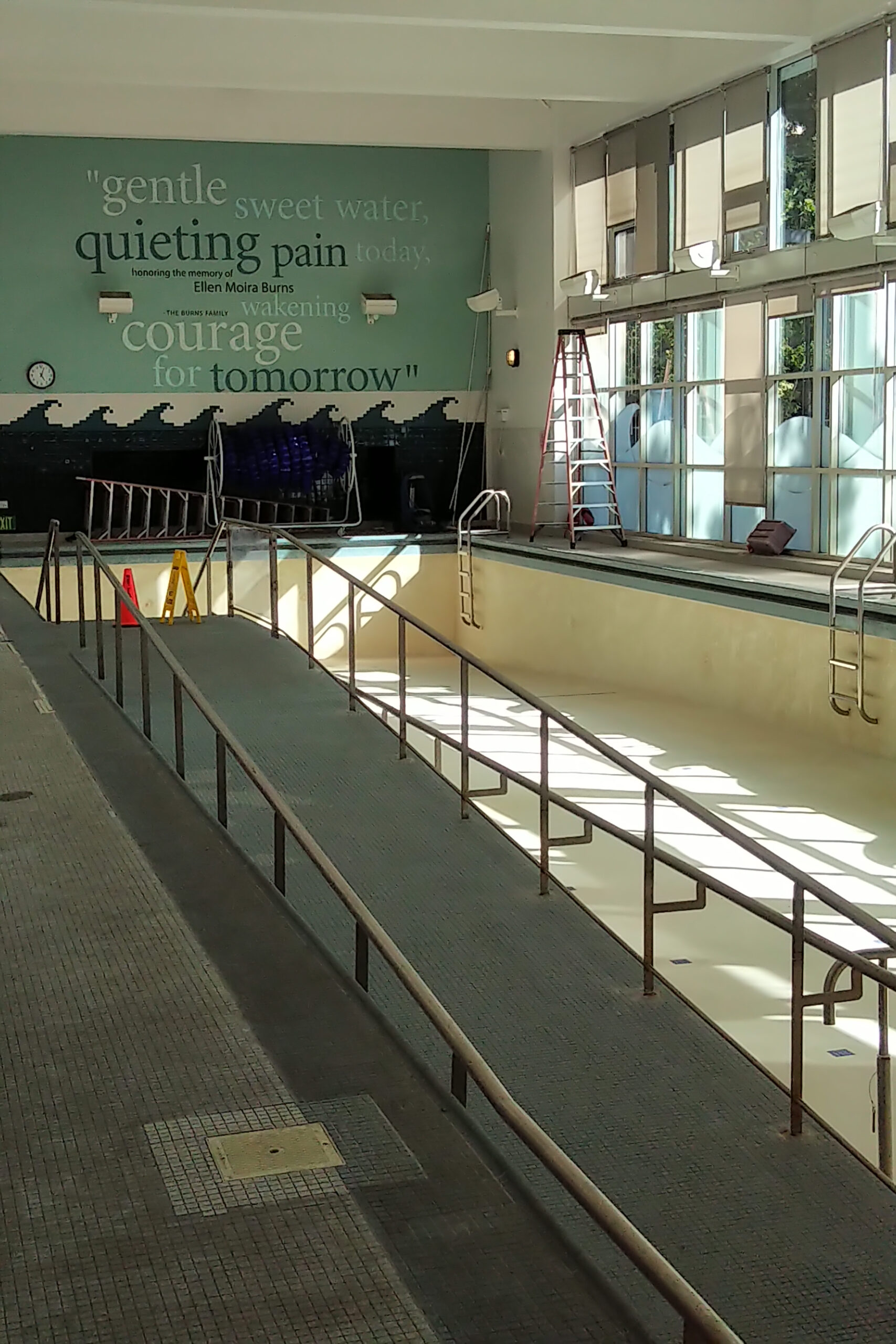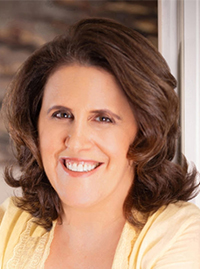South San Francisco, CA March 22, 2022 by Lindsay Raike [edited]
“I feel like I’m dying.” A month ago, my partner Brian spoke these heartbreaking words to me.
Rewind to March 2020: two days prior to the shelter-in-place county directive. I walked through the door of the Mickelson therapeutic pool facility at the Mills Health Center in San Mateo and saw Brian, standing upright in the water and smiling from ear to ear, with patrons cheering him on as he proudly walked back and forth. It was an exciting day. After years of aquatic exercise and dedication, this man, who suffered from a spinal cord injury that rendered him almost completely immobile, had made amazing progress.
Now, fast forward to March 2022. After two years without access to the Mickelson therapy pool, Brian has lost nearly all of the gains he made during a decade of warm water rehabilitation. Increasing paralysis has returned him to the level of functioning he had shortly after his injury — making it difficult for him to perform even basic activities such as grasping a fork.
As the longtime Mickelson therapy pool user who created a petition seven months ago to protest the permanent closure of this vital facility, I hear tragic stories like Brian’s every day from members of our community. Mobility-impaired seniors and disabled Bay Area residents are disproportionately affected by lack of access to this precious resource — the only remaining warm water therapy pool on the Peninsula.
As evidenced by the many heartbreaking letters to the editor in the San Mateo Daily Journal, many therapy pool patrons who were thriving and active in early 2020 — prior to the pool’s Covid-19 closure — now, without regular aquatic exercise, are struggling with increased pain, reduced mobility and a growing despair that they will never again be functional. Many have become debilitated — even bedridden — losing their ability to walk or live independently. Hundreds of senior citizens’ plans to age in place are fading away. This decline in the quality of life of the most vulnerable members of our community is unacceptable.
The Mickelson therapy pool is without equal on the Peninsula. It is fully accessible, heated to 90+ degrees, and centrally located for users who rely on public transportation. Sutter Health’s decision to permanently close this essential facility shows an unconscionable disregard for the community and flies in the face of their mission statement to “enhance the well-being of people in the communities we serve through a not-for-profit commitment to compassion and excellence in healthcare services.”
Sutter Health has a shameful history of inflating prices and eliminating community resources. When recently asked about the closure of the Mickelson therapy pool, Director Kimberly Griffin of the Sequoia Healthcare District commented, “Sutter Health makes a lot of money from the entire Bay Area. They have been under intense scrutiny and fined $575 million by the Attorney General’s Office for antitrust activity. They blocked patients from using less-expensive providers. They have also been responsible for driving up the cost of healthcare with predatory negotiations for reimbursement.”

Mickelson therapy pool that has benefited thousands, now sits
empty
Director Griffin emphasized, “Quite frankly, Sutter can afford to keep the therapy pool open.”
Sutter Health’s stance seems to be that their accumulated financial resources should be directed toward expensive new technologies rather than proven low-tech therapies such as the Mickelson pool, as indicated by Sutter Health Mills-Peninsula CEO Janet Wagner in a July 2021 presentation to the Peninsula Health Care District Board of Directors.
Sutter Health can do both; effectiveness, not trendiness, should determine how Sutter spends its money. It begs the question: A stroke victim might be saved by advanced ER technologies, but if they cannot maintain quality of life afterward through therapies such as the warm water rehabilitation pool, how successful has Sutter actually been at serving our community?
It may surprise you that just over one in four of today’s 20-year-olds will become disabled before they retire, according to Johanna Maleh and Tiffany Bosley in “Disability and Death Probability Tables for Insured Workers Born in 2000.” Brian, who was in perfect health, ran a marathon six months prior to his accident; he fell down two stairs, and his life changed forever. Disability can become anyone’s fate in an instant. A fall, a sports-related injury or any of a multitude of daily hazards can change your life or that of someone you love. Where will you, or they, go for rehabilitation if resources like the Mickelson therapy pool are so callously eliminated?
Please join the 4,000+ supporters who have signed our petition at change.org/save-the-Mickelson-pool

Lindsay Raike is a disabilities specialist with a masters degree in Expressive Arts Therapy. As the founder of Striving Together, she offers arts-based emotional support for individuals and families affected by chronic pain and disabilities. She was a patron of the Mickelson therapy pool for over 20 years and is a leader in the Save the Mickelson Pool advocacy effort.